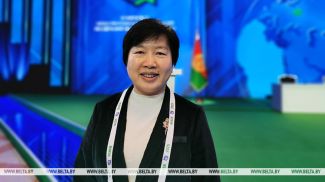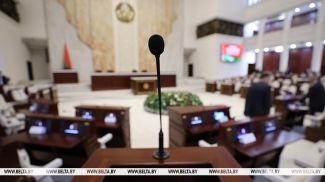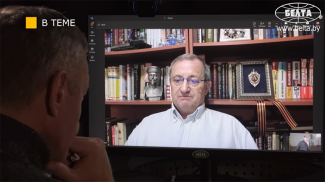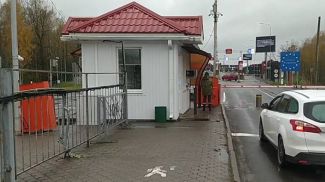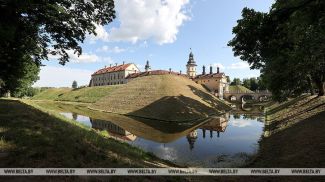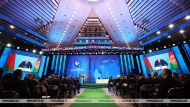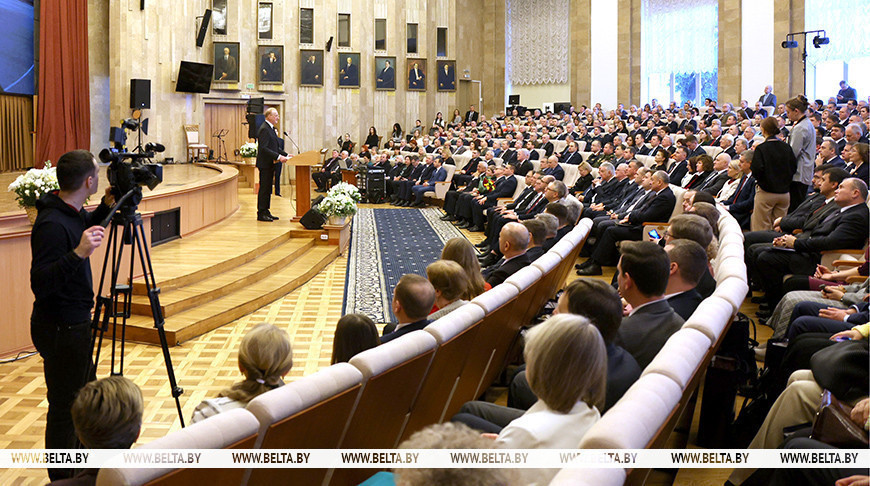
MINSK, 23 January (BelTA) – Belarusian science tries to keep up with global trends and offers cutting-edge solutions, Chairman of the Presidium of the National Academy of Sciences of Belarus (NASB) Vladimir Gusakov told journalists before the gathering of the country's scientific community, BelTA has learned.
“Belarusian science needs to take the lead. The National Academy of Sciences must lead the way in many areas. That's what we are trying to do. We are trying to earn money, find additional sources of funding, collaborate with ministries and government agencies, enterprises, sign contracts and run projects with foreign partners. We work in all areas - from microelectronics and space to new materials, biotechnology, medicines, agricultural technologies, plant varieties, machines, mechanisms. We must also be leaders in the humanities, study the centuries-old history of our country. In a word, we are trying to keep up with global trends in all areas. We also have advanced know-how,” said Vladimir Gusakov.
He cited examples of the latest developments by the NASB. “They include ultra-pure quartz glass for microelectronics and RNA vaccines to treat cancer. We will present an award for the best variety of soft wheat with good properties, including baking properties. If technologies are followed, we will be able to harvest 120 centners of grain per hectare. In addition, we have designed a small series of electric vehicles. Their level of localization is 70%,” noted the chairman of the Presidium of the National Academy of Sciences.
NASB partnered with Motovelo Plant to design an electric motorcycle. “We want the product to be functional and reliable. It is a good model. Most of the component parts are made in Belarus. We hope that we will reach 100% localization going forward. We believe that the vehicle will be marketed under the MINSK brand,” added Vladimir Gusakov.
He emphasized that science drives innovation and industrial growth. “We are trying to keep up with global trends and even be ahead of the curve in a number of areas,” the chairman of the Presidium of the National Academy of Sciences of Belarus concluded.




